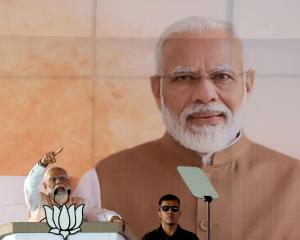Addressing New Zealand's organ donation rate - among the lowest in the world - has to be both a political and a public priority, writes MaxReid. But so, too, does emphasising the role primary health care teams have to play.
About 200,000 New Zealanders are diagnosed with chronic kidney disease (CKD).
A total of about 2600 are on dialysis and about a quarter of these patients are waiting for a suitable donor match to enable a kidney transplant.
Organ donors fall into two general categories.
Live donors include friends and family members who donate an organ to a transplant recipient, together with so-called ''altruistic'' donors who donate an organ with no specific recipient in mind.
Deceased organ donation refers to those situations where a person has just died, and their family has agreed, often in discussion with family members before that person's death, that their organ should be donated.
Kidneys from deceased donors are allocated to patients on a national waiting list, based on waiting time and kidney match.
While the Government has made a significant investment in live transplantation - which is already starting to have an impact on live transplant rates as the table shows - there has been little change in the level of deceased-donor renal transplantation.
Neither recent increases in Government funding, nor additional staff training by the oversight body (Organ Donation NZ) seem to have made a material difference to this internationally low rate of deceased-donor organ donation. As a result, the kidney transplant waiting list continues to grow.
Many consumers and health professionals are concerned some families of potential deceased organ donors are overruling their wishes by refusing to allow their organs to be used.
Although families do not have a right to object to donation, doctors often agree not to take organs to avoid dispute.
These situations can be avoided where there had been a full family discussion about organ donation wishes during the life of the potential donor.
Much of the debate has been about whether New Zealand should have an ''opt in'' or an ''opt out'' approach. Several European countries, for example, have opt out, or presumed consent, legislation which considers all people potential donors after death, unless they have registered not to be.
Such countries, understandably, have much higher deceased-donor rates. More important, however, seems to be the extent to which systems are in place to proactively approach the families of potential donors, particularly in hospitals.
This includes early identification of potential organ donors by hospital staff and a culture that believes that organ donation is the normal thing when a person dies.
Australia, for example, has recently adopted an approach where designated Intensive Care Unit staff approach the relatives to explain to them the patient's health conditions and to find out whether the patient wanted to be an organ donor.
If the relatives oppose donation, deceased organ donation does not proceed.
The issues identified above are complex, and need a broad conversation about the best mix of legislation and service improvements, building off international best practice.
This conversation should consider the potential for changes to legislation, the potential role of donor registers, and options for changing health service delivery in line with changes being made in the rest of the world.
This, though, represents but one side of the equation on how best New Zealand should deal with the growing yet largely silent epidemic of chronic kidney disease.
Recently, the Ministry of Health released a National Consensus Statement on CKD. Developed by a broad-ranging group including Kidney Health NZ, diabetes specialists, nephrologists (renal physicians), GPs, nurses and Ministry of Health personnel, the statement emphasises the crucial role of the primary health sector in enabling the early detection and treatment of kidney disease.
''Many cases of CKD are preventable. Early intervention is the best chance of avoiding CKD where people are dependent on dialysis or a kidney transplant,'' Health Minister Dr Jonathan Coleman noted on the release of the statement.
Dr Colin Hutchison, medical adviser for Kidney Health NZ, sees the emphasis on prevention as well as treatment as critical.
''Across the spectrum of health care, we all too often see the focus on the crashed car at the bottom of the cliff. This emphasis on empowering primary health care teams is critically important for effectively preventing the major complications of chronic kidney disease.''
Max Reid is Kidney Health New Zealand chief executive.












